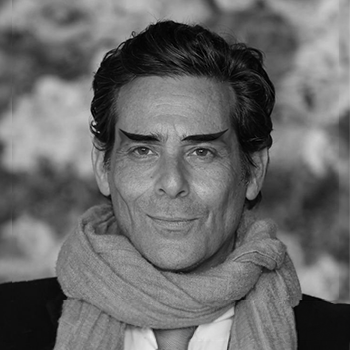Aloran sat on a wooden bench beneath an oak older than most of the Academy buildings around it. He was still in a world of cadets bustling around him, his gaze wandering around the campus, watching the cadets with the insight and forgiveness that comes with age. Some jogged in their sports’ kit, others lingered over PADD screens or laughed in small clusters. Aloran’s eyes followed the chaos with a calm, assessing look.
“Permission to join you, sir?” The voice came from one of the cadets from his lecture. She was keen-eyed, sharp-tongued in discussion, and by all accounts destined to excel in diplomacy.
“You may,” Aloran said without turning.
She sat, the bench cool beneath her, the distant sounds of play and debate washing over them
“Sir,” she began, “you said in your lecture that humour can change the trajectory of a negotiation. Do you truly think that’s so?”
“I do not follow intuition in the same sense as humans do, cadet. I observe. Humour, when applied with precision, shifts the emotional architecture of an interaction. It creates space where there was none. It is not a replacement for reason, but it can accelerate its acceptance.”
The cadet tilted her head, intrigued. “That’s not in any of the manuals.”
“Of course not,” Aloran said, turning to meet her gaze. “Starfleet’s official doctrine is precise, but incomplete. There are additional principles a diplomat must carry if they are to succeed.”
He adjusted his posture slightly, as if settling into lecture mode, but there was no podium here, no audience, only the one cadet. He felt slightly awkward and tried to resettle into a conversational attitude.
“One idea is the primacy of perception. That people will remember how you made them feel before they recall what you said. If they leave an interaction feeling respected – even if you disagreed – you have planted the seeds of future cooperation.” He looked at the cadet and smiled, enjoying the expression on the cadet’s face at his more humanlike behaviour, “Optics can be more important than empirics.”
Aloran let the statement settle for a moment, taking the opportunity to take a deep breath, “Then you must remember that our objective is not to ‘win’. The moment the other party feels they have unilaterally lost, they will seek to undo the agreement. The skill lies in shaping a path where they choose cooperation themselves, or where both parties believe they have lost with a degree of equanimity”.
“And silence,” Aloran stopped speaking, letting the silence linger for longer than usual, restarting only as he sensed the cadet preparing to interrupt, “Many of your peers will speak quickly to fill a pause. Resist this. Silence compels others to reveal more than they intended. And in diplomacy, information is often the most valuable currency.”
He watched as the cadet contemplated saying something, doubted herself given the remark about silence, and then looked back at him expectantly.
“As a Vulcan, I believe in the value of logic. But in collaborations with other species – and much of diplomacy is a collaborative relationship – then logic is a foundation upon which flexibility is the structure. If we rely too heavily on logic then our arguments ignore the cultural, political, or historical significance of what shapes how we and our allies or antagonists think.”
Aloran glanced back toward the field where some cadets were playing a ball game and exchanging mock accusations. “Observe them, cadet. They are establishing hierarchies, building rapport, and diffusing minor conflicts – all without formal structure. These same instincts, magnified, are what you will face at a negotiation.”
“Then, at all times, try to find comfort and joy in the process. Sometimes with your adversaries, sometimes with your fellow officers, sometimes in the structure of language or the small pleasure in an exchange of pleasantries”.
“I think I understand, sir,” she said slowly. “In our training simulations, some of the best results I’ve had weren’t when I cornered the other party with flawless logic, but when I left them room to save face. When they could tell themselves a story where they hadn’t been beaten, only persuaded. That wasn’t in our preparations. It just felt right at that moment.”
She leaned back, watching the same game he had pointed out. “It’s like with them.” She gestured toward the cadets in the field. “If one player makes a mistake, the others tease just enough to make it part of the game, not a failure. They keep the mood intact, so the match doesn’t collapse into blame. You can’t prearrange that, it’s instinct and trust.”
Her eyes narrowed in thought. “But what you’re describing, it isn’t just instinct. It’s discipline. You notice when to let the silence stretch, when to soften a blow, when to let the other side think the idea was theirs all along. I think, maybe, humour works the same way. It’s not about telling a joke. It’s about knowing what truth the other person will only accept if it’s wrapped in a smile.”
Aloran inclined his head slightly, as if granting the point. She smiled proudly at the gesture.

 Bravo Fleet
Bravo Fleet








